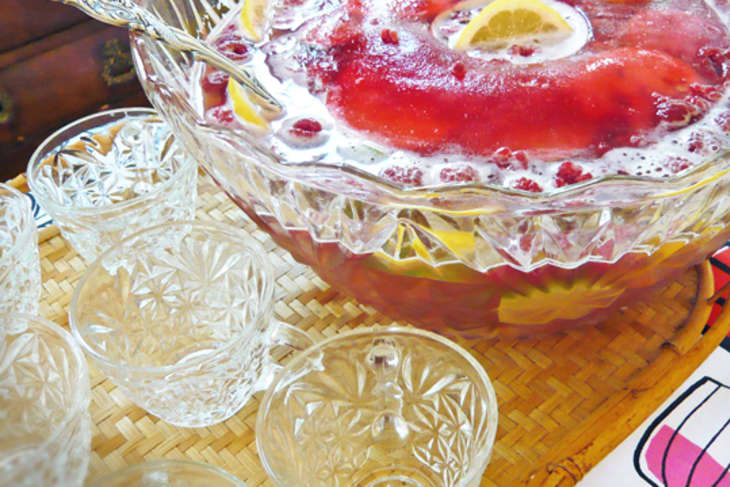Why Do We Say “Pleased as Punch”?
Just saying “pleased as punch” conjures up thoughts of a cheerful, bubbly drink at the center of some fabulously festive party.
Surely the origins of this phrase date back to some happy 18th-century public house talk, right? Sorry — like so many strange turns of phrase in our lexicon, the back story on this one is actually kind of a downer.
Punch in this case refers not to the delicious, big-batch cocktail, but rather a very naughty puppet: Punch.
A Really Naughty Puppet
Puppets are fun, aren’t they? Well, Punch, of the old Punch and Judy show, was an “appallingly wicked” puppet who “delighted in his own bad behavior,” beating everyone around him with a stick and a permanent grin on his face, according to How to Speak Brit: The Quintessential Guide to the King’s English, Cockney Slang and Other Flummoxing British Phrases, by Christopher J. Moore.
The character goes back to at least the 1600s, Moore explains, when Italian Punchinello shows were popular across Europe, arriving in England in 1662, when famed London diarist Samuel Pepys paid a repeat visit to the show, saying it “pleased me mightily.”
And Punch was about as wicked as could be. Gary Martin’s U.K. site, The Phrase Finder, describes the character as a “wife-beating serial killer” who squawks, “That’s the way we do it!” upon offing another victim. Yikes!
It’s a Seaside Tradition
Not surprisingly, the violent puppet shows — which were actually geared toward children! — have fallen out of favor.
Along the British seaside, the shows have long been a tradition. By the 1880s, all the most fashionable resorts had a Punch and Judy show on the beach, according to the site of Mark Poulton, who still runs the show on Weymouth beach in Dorset in the U.K., and is one of six licensed Punch and Judy puppeteers left in Britain.
Performers are buskers — they rely entirely on audience contributions for income, and Poulton threatened to close his curtain for good at the end of this past season, citing unruly children and increasing numbers of people who don’t pay. He has since announced he’ll be back for the 2017 season. Yay?
Back to the Party Drink …
Of course, the phrase lives on, although most of us are clueless as to its back story.
“The fact that people no longer capitalize Punch indicates that the phrase has pretty much lost the connection with its origin, and it’s just an ordinary idiom, a way of intensifying the idea of ‘pleased,'” says Orin Hargraves, a lexicographer, lecturer at University of Colorado-Boulder, and author of It’s Been Said Before: A Guide to the Use and Abuse of Clichés. “I expect many who use the phrase give no thought to its origin and it would not be surprising if a ‘folk etymology’ arose, linking the phrase to the drink.”
So there you have it: If you want to go on pretending that the phrase refers to the fun party beverage, that’s fine by us!
